Last spring, I took PHI 203: Introduction to Metaphysics and Epistemology. I had never taken a philosophy class before in my life, and in the beginning it was difficult to wrap my head around the theories brought up in the readings and precept, let alone execute a coherent argument in a paper. Throughout the course, I learned a lot not just about the theories and arguments in philosophy, but about the distinct style of philosophical writing itself. In drafting the papers, I realized just how different writing a philosophy paper is compared to writing papers in other humanities and social science disciplines. This post contains some tips on how to approach a philosophy paper for those unfamiliar with the field:
Continue reading Tips on Writing a Philosophy Paper for Non-Philosophy Majors5 Tips on Writing an English Paper
As a prospective English major, I’ve written a handful of English papers and have tried to learn what makes some stronger than the others. While the best way to write an English paper may differ based on whether you are writing about a poem, novel, play, or essay, and whether you plan to take a purely textual, historical, theoretical, or comparative approach, some fundamentals are applicable to many English assignments. Here are just some tips you can keep in mind while crafting your next paper:
Continue reading 5 Tips on Writing an English PaperNo Argument? Return to Your Research Question
Last semester, I fell in love with a cemetery. I had been interested in the processes of death and dying during the height of the AIDS epidemic in New York City and hoped to write one (or more) of my final papers about the topic. A quick series of Google searches led me to Hart Island, a public cemetery where nearly a million unclaimed or indigent people are buried, including many victims of AIDS. I was fascinated. I read everything I could find about Hart Island, watched over a dozen YouTube videos, and even scheduled a visit to the cemetery with a friend.
By the time reading period came along, I had over forty pages of notes about this cemetery. But I had no idea how to write a paper about it. When I met with one of my professors to ask for help, I started to share all of the data I had collected about this site—its history, its design, its present-day controversies. After a few minutes of this, she intervened: “Great, but what’s your question?” I looked at her blankly. “Do you have a question about this site?”
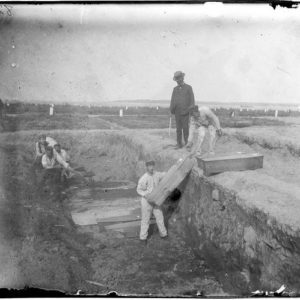
Developing a research question is hardly a new idea. It’s emphasized in the Writing Seminar curriculum, and professors often require us to articulate questions at the early stages of our projects. But once we get buried in the work itself—collecting data, writing, meeting deadlines and assignment requirements—it can be easy to forget why we’re writing at all.
Continue reading No Argument? Return to Your Research QuestionA Few Tips for Successful Writing
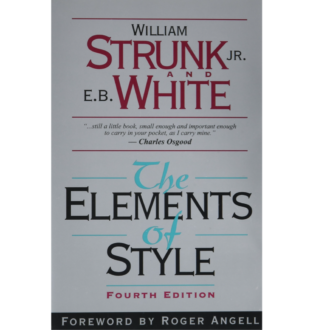
As regular readers of this blog will know, several other PCURs and I are in the throes of writing our theses. Personally, I’ve been thinking a lot about writing: what makes it effective, what strategies are successful, and what I can do to improve my own. I am by no means an expert writer, but in this post I will share a few tactics that have proven useful as I progress towards a submission-ready senior thesis. While this reflection stems from my own thesis experiences, I hope that writers of all class years and departments might find in it some principles of general applicability.
Tips on Submitting Your Research for Publication: Part II
So you’ve just finished your JP, a dean’s date assignment, or some other research project. Considering how fast things seem to move here, you might have already forgotten about it – that’s how I felt when I turned in my R3 my first year.
However, I ended up taking another look at my R3 to prepare my presentation last spring for the Mary W. George Research Conference – the biannual writing conference – (tips on doing that here). During that process, I recognized some significant changes and expansions I could make on my R3, but I didn’t think much of it at the time.
After presenting my R3, I was encouraged by my writing seminar professor and some of my peers to expand my work and submit the manuscript for a conference or for publication. After submitting to a conference and to multiple research journals, here are some of my takeaways from the publication process:
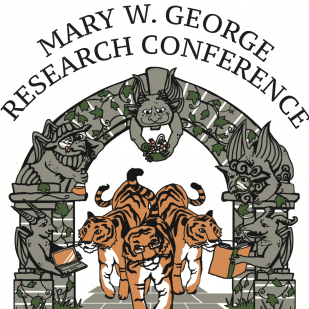
Research Resources: Unsung Heroes, An Interview with Writing Center Fellow Johanne Kjaersgaard ‘22
For this year’s Winter Seasonal Series, entitled Research Resources: Unsung Heroes, each correspondent has selected a faculty member, staff member, or peer working for a research resource on campus to interview. We hope that these interviews will provide insight into the variety of resources available on campus and supply the unique perspective of the people behind these resources. Here, Soo shares her interview.
~~~
As part of the Winter Seasonal Series, I interviewed Johanne Kjaersgaard ’22, an international student from Aarhus, Denmark. A prospective Politics major, she currently works as a Fellow at the Writing Center, one of the most widely-used academic support services on campus. Writing Center Fellows take on a variety of tasks, from guiding students in formulating and structuring papers to also offering advice to juniors and seniors in developing their senior theses and navigating their independent research projects.
Continue reading Research Resources: Unsung Heroes, An Interview with Writing Center Fellow Johanne Kjaersgaard ‘22The Search for the Perfect Writing Space
It can be difficult to find the perfect place to write. When I leave my afternoon classes, I often find myself standing on the sidewalk, unsure of where to go next. There are so many study spaces on this campus, but some days nothing feels right. (For some ideas, check out Nanako’s post about finding the perfect space for you)
The space where I work matters. And frustratingly, what I need in a study space is in constant flux, depending both on my mood and the type of work I need to get done: energetic spaces for sleepy mornings, quiet spaces for more focused work, and so on. Over my few years at Princeton, I’ve learned how different study spaces affect me: campus cafes are energizing, but distracting; Firestone carrels are productive, but isolating; and my dorm room puts me to sleep within fifteen minutes—no matter the time of day.

With larger projects like a thesis or final paper, though, it can be even harder to find the right space to write. In my experience, larger projects require more focus and endurance, making it hard to be productive in a loud, busy space. On the other hand, the prospect of extended hours in library isolation is almost always unappealing to me.
Continue reading The Search for the Perfect Writing SpaceHow to Survive a Writing-heavy Semester
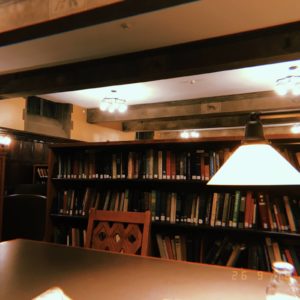
It’s always recommended to balance your course workload appropriately with a good number of paper classes and problem set (p-set) classes. While it’s definitely not ideal, sometimes you just end up taking multiple classes with a demanding reading and writing workload–which means you can also end up with four or five final papers. Some students may actually prefer having only papers and no exams, and vice versa. Exams are a one-and-done deal, whereas final papers allow an indefinite amount of time and access to endless resources–but this can be stressful in its own way. Sometimes, you never know when you’re truly done with a paper, and it can be difficult to allocate time effectively when you’re juggling multiple written assignments.
Being a prospective English major, I tend to pile my coursework with a lot of reading and writing-heavy classes. Last spring, I took four humanities/social science classes and had four papers due for Dean’s Date. Needless to say, in the beginning I felt overwhelmed by the thought of having to write and polish several papers in what felt like not nearly enough time. As a general rule of thumb, I’ve learned that time management is especially crucial when having to complete multiple Dean’s Date assignments, and that planning ahead on your papers can make your life so much easier.
Aside from time management, here are some tips so that you can avoid feeling a sense of impending doom by the time Dean’s Date rolls around:
Training for the Thesis Marathon
A long-term project like a thesis is a marathon, not a sprint. This has been a difficult adjustment for me. In almost every other research project I’ve done at Princeton, I’ve chosen the last-minute sprint model, rather than a more organized long-term approach. Sprinting hasn’t worked well in the past, but it won’t work at all for a thesis. There’s simply too much involved in a thesis to cram it into the few weeks before the deadline.
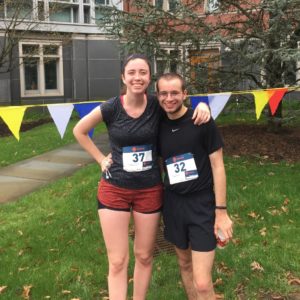
The marathon approach is new to me, so I looked up some tips for how to train for an actual marathon. I was surprised how many were relevant for a long-term project like a thesis or a final paper. I’ve collected my ten favorites here:
Write While You Read
Last spring, my JP adviser passed on a piece of wisdom from his graduate adviser: for a research project, you should spend one third of your time reading, one third of your time writing, and one third of your time editing.
This was new to me. Historically, I’d spent 80% of my time reading, 19% of my time writing, and 1% (at best) of my time editing. I had always told myself that it didn’t make sense to start writing until I’d read everything and figured out what I wanted to say. Also, reading almost always felt easier and safer than writing. Instead of constructing my own ideas, I could sit back and receive other people’s finished products.
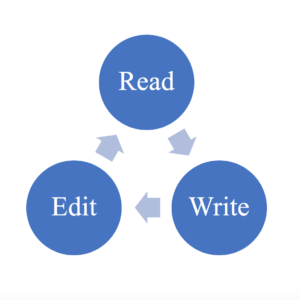
The problem was: I never ran out of things to read. Most of the time, I would only start writing once the deadline was in sight and I had no more time to waste. Rarely would I have enough time to edit my work.
For my thesis, though, I’m trying to follow my JP adviser’s system, spending equal amounts of time reading, writing, and editing. It took me until this week to realize that I need to treat these three elements as parts of a cycle, rather than macro chronological steps. In other words, I realized that I shouldn’t spend the first half of my fall semester just reading, the next few months writing, and the next few months editing. I need to be doing all three simultaneously. My reading, writing, and editing should be working in tandem with each other.

